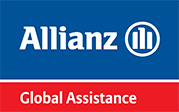Drawing on insights from leading industry experts, Joe Mason, Chief Marketing Officer for Travel, Allianz Partners, and Luís Araújo, President, European Travel Commission, as well as on Allianz Partners’ own customer trends data, the report highlights the increase in stress factors facing travellers today.
As well as navigating ongoing health-related concerns, travellers now face geopolitical turbulence, high inflation and wider economic uncertainties. This is leading to a new attitude to travel, where in-built flexibility and protection against the “what-ifs” are even more important.
Allianz Partners’ data reveals that demand has seen customer intentions to purchase travel insurance across five major European markets (Belgium, France, Germany, Italy, UK) increase substantially from 21 per cent in 2019 to 55 per cent in 2022 for international travel, and from 12 per cent to 26 per cent for domestic travel. In line with rising demand, Allianz Partners recorded its highest ever level of claims for post-departure benefits in 2022.
The research also highlights the following trends:
- “Work-from-anywhere” goes mainstream: growth in remote and hybrid working means more travellers of all ages are combining business and leisure, leading to the rise in “Bleisure” travel. The report also highlights the adaptations required by the travel industry to meet these demands – such as the need for updated regulation, resolutions to tax residency issues and the need for further investment in popular destinations.
- With hybrid working models likely here to stay into the future, more travellers expect to work from abroad or from another residence. Allianz Partners’ Customer Lab research has found that 28 per cent of travellers aged 18 to 25 expect to work from abroad more frequently or from a secondary or family residence in the future.
- Flexibility is key: 58 per cent of younger families now plan to make flexible travel reservations to deal with unforeseen circumstances. The year 2022 has been marked by increased travel by larger family groups across multiple generations, driving significant change in the industry. Hotels and resorts therefore need to cater for a wider spectrum of guests and become much more adaptable to a diverse customer base.
- Forty one per cent of consumers are conscious of the environmental impact of travel, however sustainability remains a relatively minor factor in travel decision-making processes.
Joe Mason, Chief Marketing Officer for Travel at Allianz Partners, commented: “The desire to travel again has been evident in busy departure lounges and packed resorts in 2022. But the effects of the pandemic on travellers’ needs and expectations are here to stay.
The insurance industry is now providing services to a more demanding and better-informed consumer, who has a heightened awareness of both what good service looks like and what can go wrong. Therefore there is a lot more pressure on the travel industry to deliver. Flexible, seamless solutions to cover all the what-ifs are now central to the offer.”
Luís Araújo, President, European Travel Commission, added: “The travel industry has shown incredible resilience in the last three years. While the hospitality and travel sectors have started to build flexibility and adaptability into their operating models, this now needs to be replicated in other parts of the travel ecosystem.
Attractions, museums and events are just some areas that need to begin thinking about offering more optionality to travellers looking to limit the risk of disappointment or financial loss if they face disruption. If different parts of the industry can work together to make the entire travel experience a positive one, the better prepared it will be for the future.”
